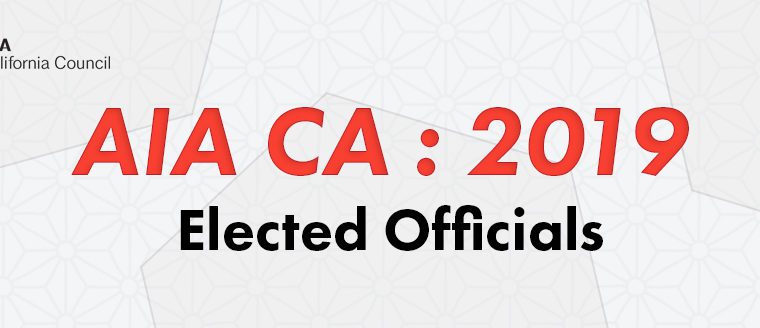The 2019 AIA CA Elections were held November 2 in Newport Beach. Results of the incoming elected officers are below:
First Vice President/President-Elect:
Debra Gerod, FAIA
Vice President of Communications/Public Affairs:
Ian Merker, AIA
Vice President of Government Relations:
Rona G. Rothenberg, FAIA
Vice President of Education and Professional Development:
Donald W. Caskey, FAIA
Vice President of CA CACE:
Carlo Caccavale, Hon. AIA LA
Young Architects Regional Director (YARD), North:
Tay Othman, AIA
Associate Director, South:
David T Phung, Assoc. AIA
Student Director, South:
Liam Hanlon, AIAS
AIA Delegates: 2019-21 Regional Representative to the AIA Strategic Council:
Brian A. Sehnert, AIA



